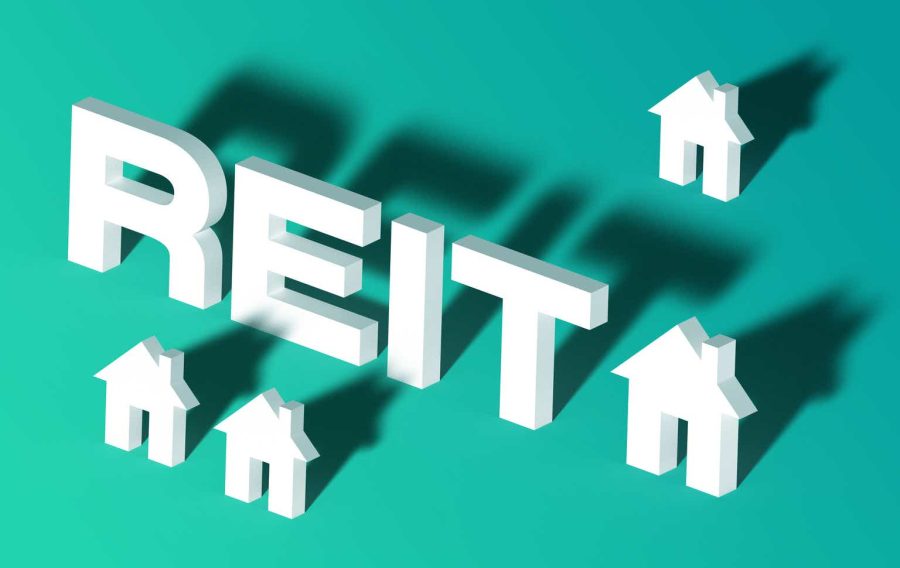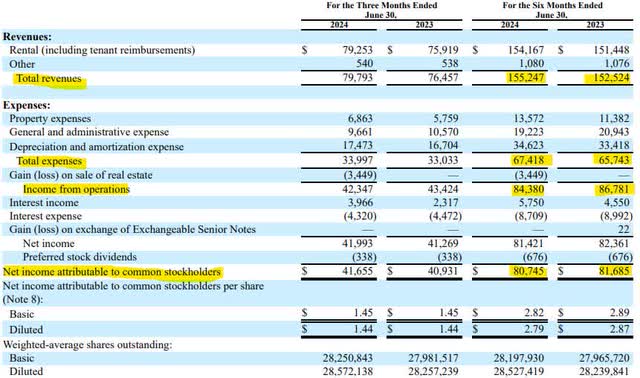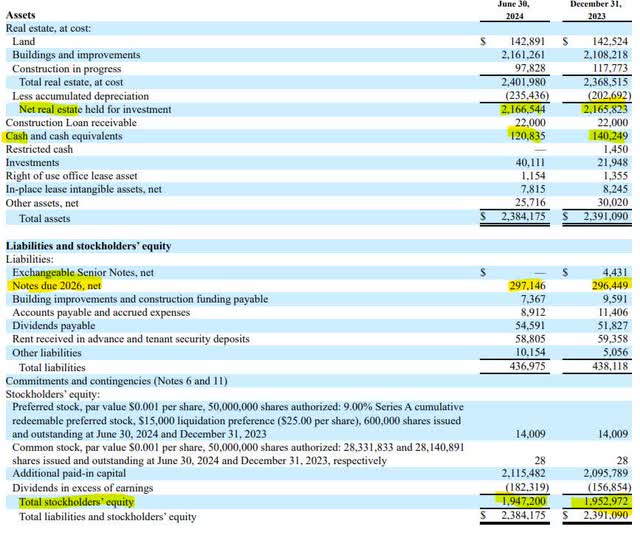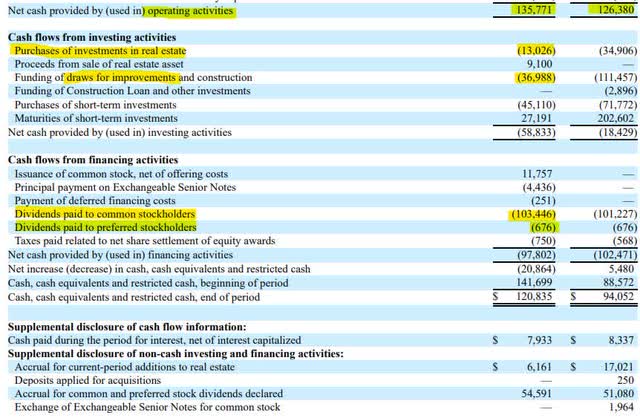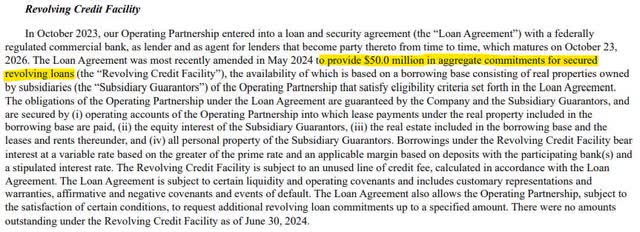Summary:
- Innovative Industrial Properties is a REIT focused on leasing properties to the cannabis industry, with preferred shares offering an 8.5% dividend yield.
- The company improved operating cash flow to $136 million and free cash flow to $122 million, ensuring dividend sustainability.
- With over $200 million in liquidity, the capital improvement allowance is manageable, but call risk on preferred shares and potential common share issuance pose risks.
filo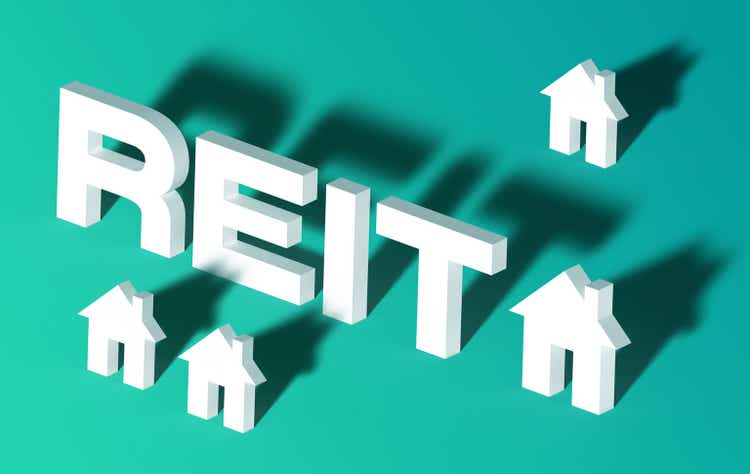
Introduction
Innovative Industrial Properties (NYSE:IIPR) is a real estate investment trust (REIT) that focuses on the leasing of properties to support the cannabis industry. Back in late 2022, a situation emerged where the company’s debt maturing in 2026 was trading at a higher yield than its preferred shares (NYSE:IIPR.PR.A). Today, the bond price is a bit higher, but still yielding a respectable 7.7%. However, a recent sell-off in the preferred shares has the dividend yield rising to over 8.5%, to which income investors should strongly consider purchasing.
IIPR Financial Results
Innovative Income Properties collects almost all its revenue from the rental of its properties. In the first half of 2024, the company saw its rental revenue tick up by more than $2.5 million. On the expense side, total expenses rose by less than $2 million, as improvements in general and administrative expenses helped offset the increase in property expenses and deprecation. Income from operations did drop by $2.5 million to $84 million after the company reported a $3.4 million loss on the sale of property. Other than the one-time charge, Innovative Income Properties is performing slightly better than it did a year ago.
An examination of the company’s balance sheet shows that a large portion of the company’s assets is unencumbered. The asset portion of the balance sheet consists mostly of property and cash, while the liability portion is light. The company’s $300 million of notes due in 2026 are the only interest-bearing liability. Shareholder equity has remained stable at $1.95 billion.
Dividend Sustainability
I am a firm believer that companies need to be able to finance their dividends through free cash flow. Innovative Industrial Properties improved its operating cash flow to $136 million from $126 million during the first half of 2024. Free cash flow was $122 million after investments in real estate. The company does have $37 million in draws related to construction improvements, but these appear to be related to new lease agreements. There is sufficient cash flow to cover the common share dividends, but the preferred dividends are senior and make up a negligible obligation where cash flow is nowhere near threatening them.
Liquidity and Improvement Allowance
In my previous article, I expressed concern over Innovative Industrial Properties’ capital improvement allowance. At the time, a balance of over $100 million posed a threat to the company’s cash flow. Today, that number has mitigated down to just over $50 million, which is manageable for operations. In addition to $120 million in cash and $40 million in investments, the company also has an untapped revolving credit facility of $50 million. With over $200 million in liquidity, I believe the improvement allowance is well covered.
Risks to Innovative Industrial Properties
Despite the improvement allowance being covered, there are other risks that investors should be mindful of. The main risk to an investment in the preferred shares is the call risk. The preferred shares are paying a 9% dividend at face value and are currently callable. The share price trades at $1.34 per share over par. While one quarter of dividends is guaranteed, there are two more quarters of dividends needed for investors to be made whole at current prices. While declining rates could provide an attractive means of calling in these shares, I do believe that further rate cuts would need to happen for this to be possible.
The second risk is not to the preferred shares, but to common shares, and worth mentioning as it relates to my rating the common shares as a “hold.” Innovative Industrial Properties has authorization to issue more preferred shares if they wish. This growth in the senior class of shares could place pressure on the value of common shares and the ability of the company to cover the common dividends. It is important to note that the cost of capital for common shares is lower than preferred shares, but even there, the issuance of common shares places risk on the value of those shares. With this industry having difficulty with financing, the common shares may become a future source of financing for either the note payoff, preferred share buyback, or growth of the business.
Conclusion
Innovative Industrial Properties has made many improvements since I wrote about them nearly two years ago. The company is generating strong operating earnings and has kept its leverage very low. The company’s debt is still a good investment for income investors with a yield of 7.7%, but the preferred shares are now yielding more with their recent selloff at over 8.5%. Income investors should consider the preferred shares despite the short-term call risk.
Analyst’s Disclosure: I/we have no stock, option or similar derivative position in any of the companies mentioned, and no plans to initiate any such positions within the next 72 hours. I wrote this article myself, and it expresses my own opinions. I am not receiving compensation for it (other than from Seeking Alpha). I have no business relationship with any company whose stock is mentioned in this article.
Seeking Alpha’s Disclosure: Past performance is no guarantee of future results. No recommendation or advice is being given as to whether any investment is suitable for a particular investor. Any views or opinions expressed above may not reflect those of Seeking Alpha as a whole. Seeking Alpha is not a licensed securities dealer, broker or US investment adviser or investment bank. Our analysts are third party authors that include both professional investors and individual investors who may not be licensed or certified by any institute or regulatory body.
